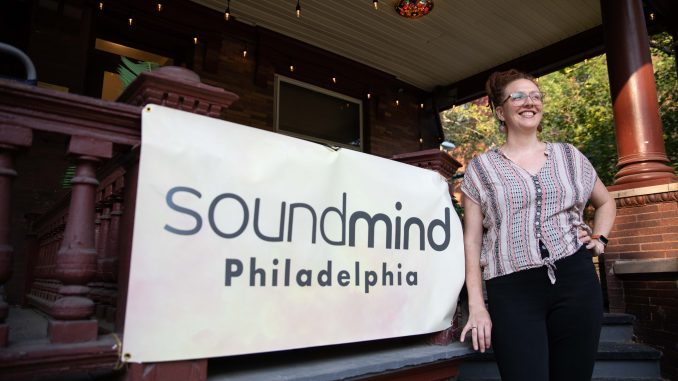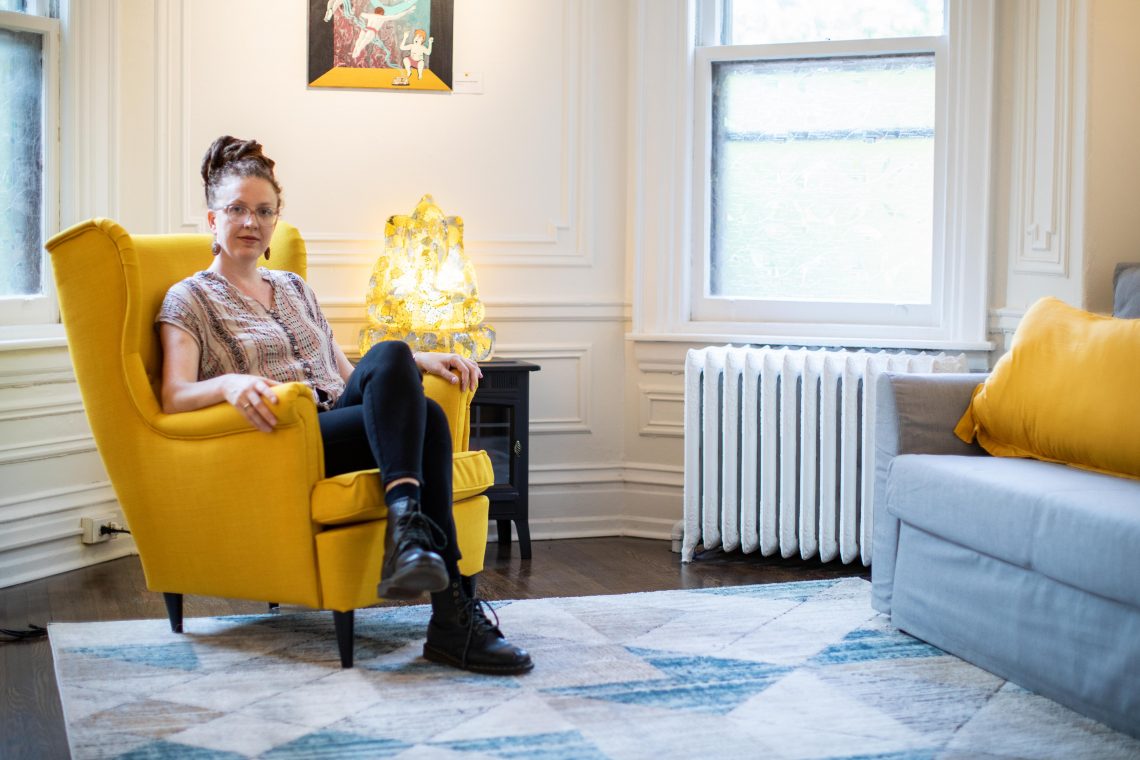
Temple alumna Hannah McLane hopes to turn West Philadelphia into a hub of psychedelic healthcare and treatment.
McLane, a psychotherapist and advocate for the use of psychedelic medicine, launched SoundMind Center, a psychedelic healing, research and education facility on the corner of Spruce Street and Farragut, on Aug. 1. She chose West Philly because of the high amount of mental health issues and trauma that residents face, she said.
The center, which is the first psychedelic-assisted mental health clinic in the Philadelphia area, goes beyond traditional therapy by offering ketamine, a medication used primarily for anesthetics, prior to a session of psychotherapy to treat depression, anxiety, PTSD, race-based trauma and other mental health issues, according to SoundMind’s website.
Since August 2021, SoundMind has trained more than 85 clinicians and raised over $22,000 for training BIPOC clinicians in psychedelic-assisted psychotherapy procedures, McLane said.
Mental health has always been a passion for McLane, which is why she pursued medical school and graduated with a medical degree from Brown University and a public health degree from Harvard, in 2013.
After attending The Sleeping Octopus Assembly on Psychedelics, a conference that educates attendees on the role of psychedelics, in 2018, McLane was introduced to the effects of psychedelics for treating post-traumatic stress disorder. The research inspired McLane to create the SoundMind Center with hopes to bring those same treatment methods and opportunities to residents of West Philadelphia.
“West Philadelphia is an important center for healthcare,” McLane said. “We offer a unique approach to treatment and patient care for the area and people are excited about it.”
The Soundmind Center was founded in partnership with the Multidisciplinary Association for Psychedelic Studies, a nonprofit organization focused on educating the public regarding psychedelic substances.
The center was a three-year-long ambition for McLane who hopes the center can help destigmatize psychedelic use in therapy while providing affordable treatment for local West Philadelphia residents by subsidizing treatment through donations.
“Affordability and equity are important to us,” McLane said. “Psychedelic-assisted therapy can only do so much good if people don’t have access to it.”

America’s War on Drugs created a lack of medical research into the clinical potential of controlled substances, which is why she hopes the center can be on the leading edge of new research and education on psychedelic medicine, McLane said.
The United States banned LSD use in 1966 and MDMA in the 1980s, and the U.S. Food and Drug Administration shut down all research on psychedelics, Timeline reported.
While the center currently offers ketamine treatments, there are plans to expand to MDMA and Psilocybin assisted therapy pending FDA approval.
MDMA, commonly known as ecstasy, is in its third phase of FDA clinical trials, according to MAPS, which believes that MDMA could be used in therapy to treat severe PTSD. McLane hopes the FDA will approve the psychoactive drug for PTSD treatment by 2023.
“These medications, along with the guidance a therapist can provide, can help a patient turn inward and confront trauma in a way that’s not aggressive or frightening,” McLane said.
Aubrey Howard, director of BIPOC Protocols and Community Outreach at SoundMind is confident that a visit to the center will reassure anyone with concerns regarding psychedelic medicine.
“We’re cautious in everything we do,” Howard said. “There’s been a long tradition of these medications and techniques in the medical field. We’re continuing that.”


Be the first to comment